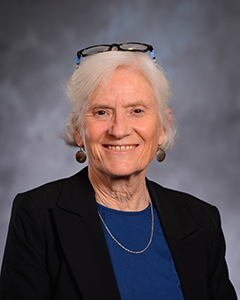By Pam Marsh
May 09, 2019 The Oregonian
Marsh, D-Ashland, represents House District 5 in the Oregon Legislature.
In summer 2017, Portland watched the beloved Columbia River Gorge go up in flames. Last summer, Southern Oregon suffered through six weeks of choking smoke. In November, we all watched from a distance as Paradise, California, a town much like others in Oregon, burned to the ground. It is clear that smoke and fire threaten the health, economy, and future of communities across the state.
The gravity of our situation is reflected in the numbers. Oregon wildfires cost a whopping $514 million in 2018 and that half billion is not the end of our troubles. Fire seasons will grow longer each year. Wildfires will become more ferocious and less predictable — made worse by climate change. The impacts of fire and smoke on our lives will be more severe. Costs will increase.
The National Interagency Fire Center has already predicted a heavy wildfire season for areas along the west coast. Just last week, the Bray Mill Fire in Klamath Fall burned through 400 acres – the third major wildfire of the year. Official fire season doesn’t even begin until July 1.
Our southern Oregon communities are strong and resilient. We’ve come together to understand the multiple issues involved in smoke and fire and to identify pragmatic steps to keep our community safe. But we can’t do that alone. We need the state of Oregon to fund smart investments that will help us confront the fires we know are coming.
The state’s new Wildfire Council, established via executive order by Gov. Kate Brown and just getting underway, has been tasked with developing long-term recommendations to address these new fire seasons. We must increase the pace and scale of prevention and restoration activities. I expect the council to come up with innovative strategies and funding for this purpose, and to tackle the subject of reinforcing firefighting operations.
Meanwhile, the Oregon Department of Forestry must have adequate support to implement fire protection and preparedness over the next two years. The need is urgent. It’s likely that we will face fires within a few months. Money we invest now will enable the agency to leverage partnerships with the state and federal governments, community leaders and forest collaboratives, and to draw upon the expertise of our nonprofit and business communities.
After conversations with many stakeholders, I am supporting a $6 million budget package to fund four critical areas of need:
· Provide more resources for the Oregon Department of Forestry. We need staff to lead firefighting, engage landowners in preparing for fire, implement restoration treatments in at-risk forests, and ensure that Oregon’s forest resources are protected.
· Supplement front-line fire resources available for initial attack when a fire is reported.
· Fund community resiliency and smoke impact mitigation grants. Forest restoration efforts across the state, including the Ashland Fire Resiliency project, depend on controlled burns to reduce fuel and restore ecosystem health. This funding will help communities protect vulnerable residents by planning and implementing smoke mitigation strategies. They will develop programs to inform and educate citizens about the safe use of controlled burns as an essential forest management tool. (The Department of Environmental Quality has already established rules governing these burns to protect communities from undue smoke impact.)
· Support landscape analysis and mapping. Oregon is home to broad and beautiful swaths of forestland. We need to understand where our most at-risk landscapes and communities lie. Statewide mapping will also be used to prioritize forest restoration projects and target support for the use of controlled burns.
Living with the threat of smoke and fire is challenging. The last few summers have been depressing and scary. But over the past six months, we’ve begun to identify strategies that will keep our communities as safe as possible and our local economies robust. Now we need the state of Oregon to step up.
